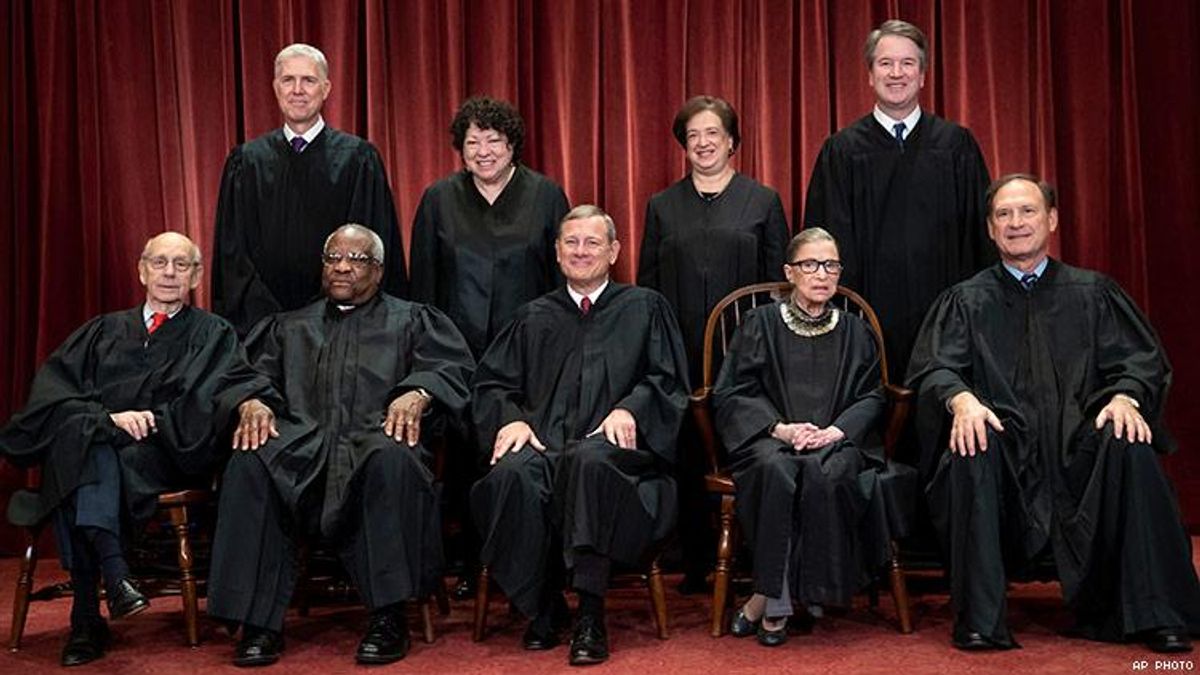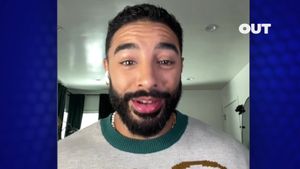In a decision that has broad implications for LGBTQ+ workers, the U.S. Supreme Court Wednesday ruled that federal antidiscrimination laws do not apply to teachers at church-sponsored schools if instruction in religion is part of their jobs.
And in a separate decision that also stands to affect LGBTQ+ people because of its expansion of religious exemptions, the court ruled that faith-based employers can deny birth control coverage to workers despite the Affordable Care Act's mandate for such coverage.
The first decision came in two cases that had been consolidated, Our Lady of Guadalupe School v. Morrissey-Berru and St. James School v. Biel, both involving Catholic schools within the Archdiocese of Los Angeles. Agnes Morrissey-Berru had sued for age discrimination after her contract was not renewed, and Kristen Biel had sued under the Americans With Disabilities Act because she was discharged after she sought a leave of absence to be treated for breast cancer. She has since died.
The high court ruled that because the teachers' duties included religious instruction, they were subject to a "ministerial exception" that the court had established in a previous case, Hosanna-Tabor Evangelical Lutheran Church and School v. EEOC, giving faith-based schools broad latitude in choosing their employees.
"When a school with a religious mission entrusts a teacher with the responsibility of educating and forming students in the faith, judicial intervention into disputes between the school and the teacher threatens the school's independence in a way that the First Amendment does not allow," Justice Samuel Alito wrote for the 7-2 majority. The court declined to establish a "rigid formula" for when the ministerial exception applies.
Justice Sonia Sotomayor wrote a dissenting opinion, in which Justice Ruth Bader Ginsburg joined. The majority, she said, had ignored the "careful analysis" of the Hosanna-Tabor decision, which involved a teacher with a specifically religious role. In the cases decided today, she wrote, the teachers "taught primarily secular subjects, lacked substantial religious titles and training, and were not even required to be Catholic."
"In foreclosing the teachers' claims, the Court skews the facts, ignores the applicable standard of review, and collapses Hosanna-Tabor's careful analysis into a single consideration: whether a church thinks its employees play an important religious role," she continued. "Because that simplistic approach has no basis in law and strips thousands of schoolteachers of their legal protections, I respectfully dissent."
In recent years, there have been many teachers and other church employees fired for being LGBTQ+, often because they had married a same-sex partner, and some of them have sued. The court's recent ruling in Bostock v. Clayton County held that anti-LGBTQ+ discrimination constituted sex discrimination, which is banned by federal law, but today's decision will likely lead many religious employers to claim the ministerial exception in dismissing LGBTQ+ workers.
"Today, the Supreme Court opened a veritable Pandora's Box that threatens the continued employment and financial security of thousands of teachers at religiously affiliated schools," Lambda Legal Senior Counsel and Law and Policy Director Jennifer C. Pizer said in a press release; her group had filed friend-of-the-court briefs in both the employment and contraceptive cases. "While there is no serious dispute that top authorities at churches and religious schools are free to select those who lead worship services or teach the tenets of their faith, it stretches the term 'minister' beyond recognition to also include those whose jobs or duties have little to do with propagation of the faith. Teachers of secular subjects are not clergy by any reasonable understanding of the word. They should not be deemed clergy simply to shield their employers from liability for wrongful workplace practices. The ministerial exemption especially should not apply to strip protections from teachers with secular roles at large educational institutions that serve the entire general public, regardless of whether those institutions have some sort of religious ties."
"This decision is a sad and contradictory follow-up to the Court's June 15th Title VII decision which sought to protect LGBTQ people from employment discrimination," Francis DeBernardo, executive director of New Ways Ministry, a Catholic group that supports LGBTQ+ equality, in a written statement. "Although these two recent employment cases did not involve LGBTQ issues or people, the ruling bolsters church officials' broad claim to a religious exemption from federal anti-discrimination law in a variety of situations, including cases involving sexual and gender minorities. Over the past decade, we have seen over 100 public cases where people have lost their jobs at Catholic schools and parishes because of their sexual orientation, gender identity, marital status, or support for LGBTQ people. This record is shameful."
LGBTQ+ and other civil rights groups also denounced the ruling in Trump v. Pennsylvania and Little Sisters of the Poor Saints Peter and Paul Home v. Pennsylvania. That state and New Jersey had challenged a Trump administration rule allowing faith-based employers great latitude to deny contraceptive coverage to workers. The ACA had required employers to provide the coverage at no cost to workers, and the Obama administration offered alternative means for employees to receive the coverage if certain employers had religious objections. Donald Trump's administration broadened this exception, "allowing essentially any employer to deny the insurance based on religious or personal moral objections of any sort and without giving notice," a Lambda Legal press release notes.
In today's 7-2 ruling, which broke along the same lines as the employment ruling, Justice Clarence Thomas wrote for the majority that the Trump administration "had the authority to provide exemptions from the regulatory contraceptive requirements for employers with religious and conscientious objections." The Supreme Court sent the cases back to lower courts, where the states "are all but certain to pursue their argument that the current rule is flawed on yet another ground," Alito wrote in a concurring opinion.
Ginsburg, who wrote the dissenting opinion, said the ruling means that "between 70,500 and 126,400 women would immediately lose access to no-cost contraceptive services."
"While the implications for women's health of today's ruling are dire, so too are the implications for LGBTQ people, everyone living with HIV, and many more," Lambda Legal's Pizer said. "Even before our nation came to be gripped by the worst public health pandemic in a century, LGBTQ people and their families endured widespread abuse and discrimination in the health care context, as in other contexts, often with religious motives. ... The potential of today's catering to religious interests to harm LGBTQ people and many others is alarming. In this country, freedom of religion has never meant allowing religious objectors to deny the rights or freedoms of others. Again, we call on Congress immediately to override what the Trump administration has done, which today's Court majority acknowledges Congress can do."


















































































Fans thirsting over Chris Colfer's sexy new muscles for Coachella